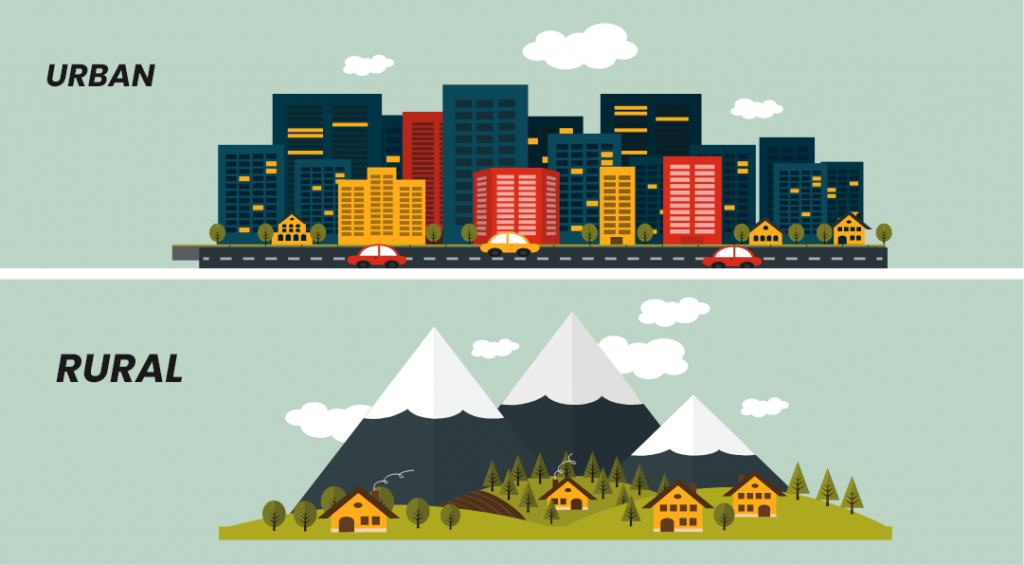
Choosing the Right Environment for Startup Development: Rural or Urban?
Choosing the Right Environment for Startup Development: Rural or Urban? https://theraise.eu/wp-content/uploads/2023/07/Artboard5-1024x565-1.png 1024 565 RAISE fosters startup growth and scale-up within and across Europe RAISE fosters startup growth and scale-up within and across Europe https://theraise.eu/wp-content/uploads/2023/07/Artboard5-1024x565-1.pngWhen it comes to startup development, location plays a significant role in shaping the opportunities and challenges faced by entrepreneurs. The choice between rural and urban areas can have a profound impact on the success and growth of a startup. While urban areas are often seen as the default choice due to their infrastructure and access to resources, rural areas offer unique advantages that can foster innovation and long-term sustainability. In this article, we will explore the pros and cons of both rural and urban areas for startup development, helping entrepreneurs make an informed decision about their ideal environment.
Urban Areas: Thriving Hubs of Innovation
Urban areas have traditionally been the go-to choice for startups due to their concentration of resources, talent, and networking opportunities. The bustling startup ecosystems in cities provide access to investors, mentors, and a diverse talent pool, making it easier to attract skilled professionals and secure funding. The proximity to universities, research institutions, and established companies also promotes collaboration and knowledge exchange. Additionally, urban areas offer robust infrastructure, including reliable internet connectivity, transportation networks, and support services tailored to the needs of startups.
However, the urban landscape also presents challenges. High competition and rising costs of living can put significant financial strain on startups, particularly in terms of office space and talent acquisition. The fast-paced and competitive nature of urban environments may result in startups struggling to differentiate themselves and find their niche. Moreover, the saturation of certain industries in cities may limit the market opportunities available for new ventures.
Rural Areas: Untapped Potential and Unique Advantages
Rural areas, often overlooked in startup discussions, offer distinct advantages that can fuel entrepreneurial growth. These regions provide a more affordable cost of living, lower business expenses, and potentially attractive incentives from local governments eager to stimulate economic development. The lower competition and smaller talent pool can actually work in favor of startups, as they have a higher chance of attracting and retaining skilled professionals. Furthermore, rural areas often boast close-knit communities that are supportive, fostering a sense of collaboration and loyalty.
In recent years, technological advancements, such as improved internet connectivity and remote work capabilities, have reduced the geographic limitations that rural areas once faced. Entrepreneurs can now tap into global markets while enjoying the benefits of a rural lifestyle, such as access to natural resources, lower stress levels, and a higher quality of life. Additionally, rural areas may offer niche market opportunities related to agriculture, sustainable energy, tourism, and unique local products.
Nevertheless, rural areas can present challenges in terms of access to specialized resources, limited networking opportunities, and potential difficulties in securing investment capital. The perception of rural areas as less innovative or technologically advanced can also pose hurdles in attracting talent or gaining market recognition.
Conclusion
When choosing between a rural or urban area for startup development, it is crucial to consider the specific needs and goals of the venture. Urban areas offer established startup ecosystems, abundant resources, and a dynamic environment, but they come with intense competition and high costs. On the other hand, rural areas provide affordable living, a supportive community, and potential niche markets, while facing challenges related to access to resources and networking opportunities.
Ultimately, successful startup development can occur in both rural and urban areas, with each offering its own unique advantages and disadvantages. It is essential for entrepreneurs to assess their specific requirements, consider the industry they are entering, and weigh the potential opportunities and challenges associated with each environment. By making an informed decision, startups can position themselves for growth, innovation, and long-term success, regardless of their chosen location.
Headline picture: Pandai
- Posted In:
- Startup News




